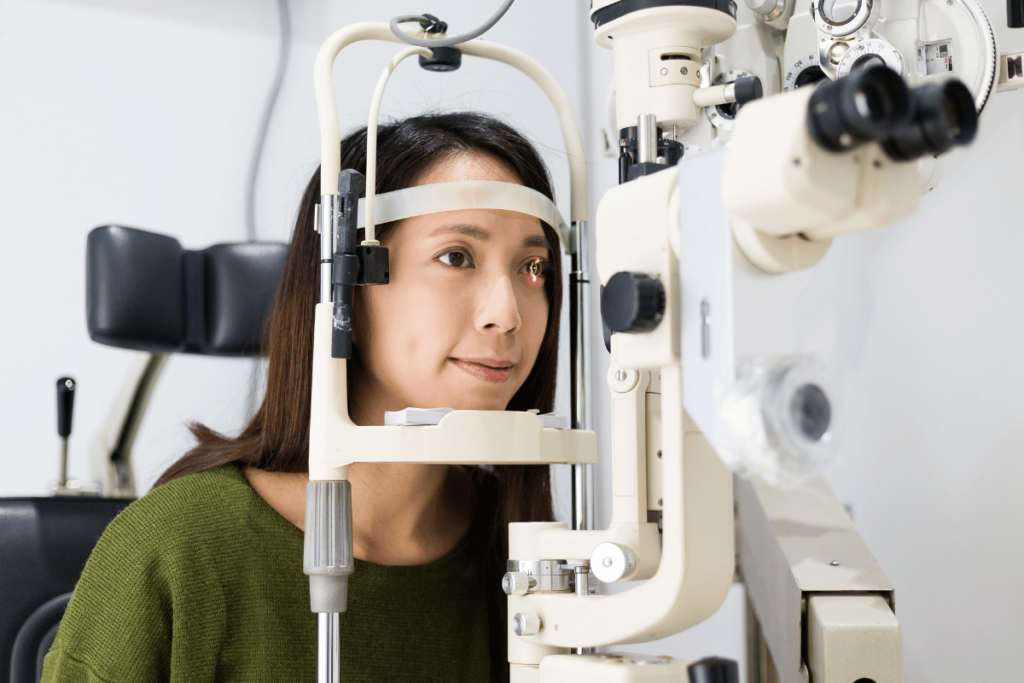When you think about getting an eye exam, you probably picture picking out new glasses or updating your contact lens prescription. But did you know that an eye exam can reveal much more than just vision changes? Eye exams can help detect serious health issues, including diabetes. Learn how our diabetic eye exams in Jacksonville can identify early signs of diabetes and why regular visits to your optometrist are so important.
How diabetes affects your eyes
Diabetes can affect several parts of your body, including the eyes. One of the most common eye-related complications of diabetes is diabetic retinopathy. This condition occurs when high blood sugar levels damage the blood vessels in the retina, the part of your eye that captures light and sends images to your brain. Other eye conditions, such as cataracts and glaucoma, are also more common in individuals with diabetes.
What eye doctors look for
During a comprehensive eye exam in Jacksonville, our optometrists can spot signs of diabetes even if you haven’t noticed any symptoms. We may see tiny bulges in the blood vessels, small spots of bleeding in the retina, or deposits of fat or protein from leaky blood vessels.
We also look for swelling in the macula (the central part of the retina), which can blur your vision, and abnormal growth of new blood vessels. High blood sugar can also cause the lens to swell and affect the optic nerve, potentially causing vision problems.
What to expect during a diabetic eye exam
A diabetic eye exam involves several steps, many of which are part of a regular comprehensive eye exam. Your optometrist may include:
- Digital retinal imaging: A non-invasive procedure that captures detailed images of your retina to identify abnormalities or early signs of diabetic eye disease.
- A dilated eye exam: Special drops are used to widen your pupils, allowing a closer look at the retina.
- Optical coherence tomography (OCT): This imaging test takes cross-sectional pictures of the retina to detect swelling or changes.
If your eye doctor spots signs of diabetes during your exam, they’ll refer you to a primary care doctor or an endocrinologist for further testing and treatment. Managing diabetes typically involves lifestyle changes, medication, and regular check-ups.
Stay ahead of issues with regular eye exams
Your eyes can tell us a lot about your overall health, and an eye exam is a valuable tool for detecting diabetes. By scheduling regular eye exams, you can catch early signs of diabetes and other health issues, ensuring you get the care you need promptly.
Are you noticing vision changes, or has it been a while since your last eye exam? Schedule an appointment with our experts today!




